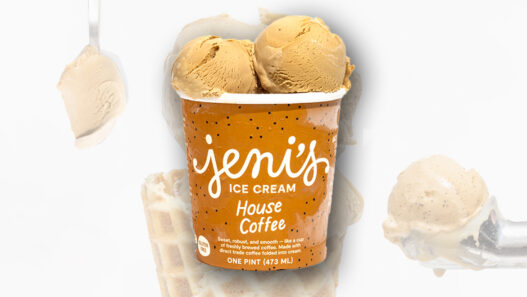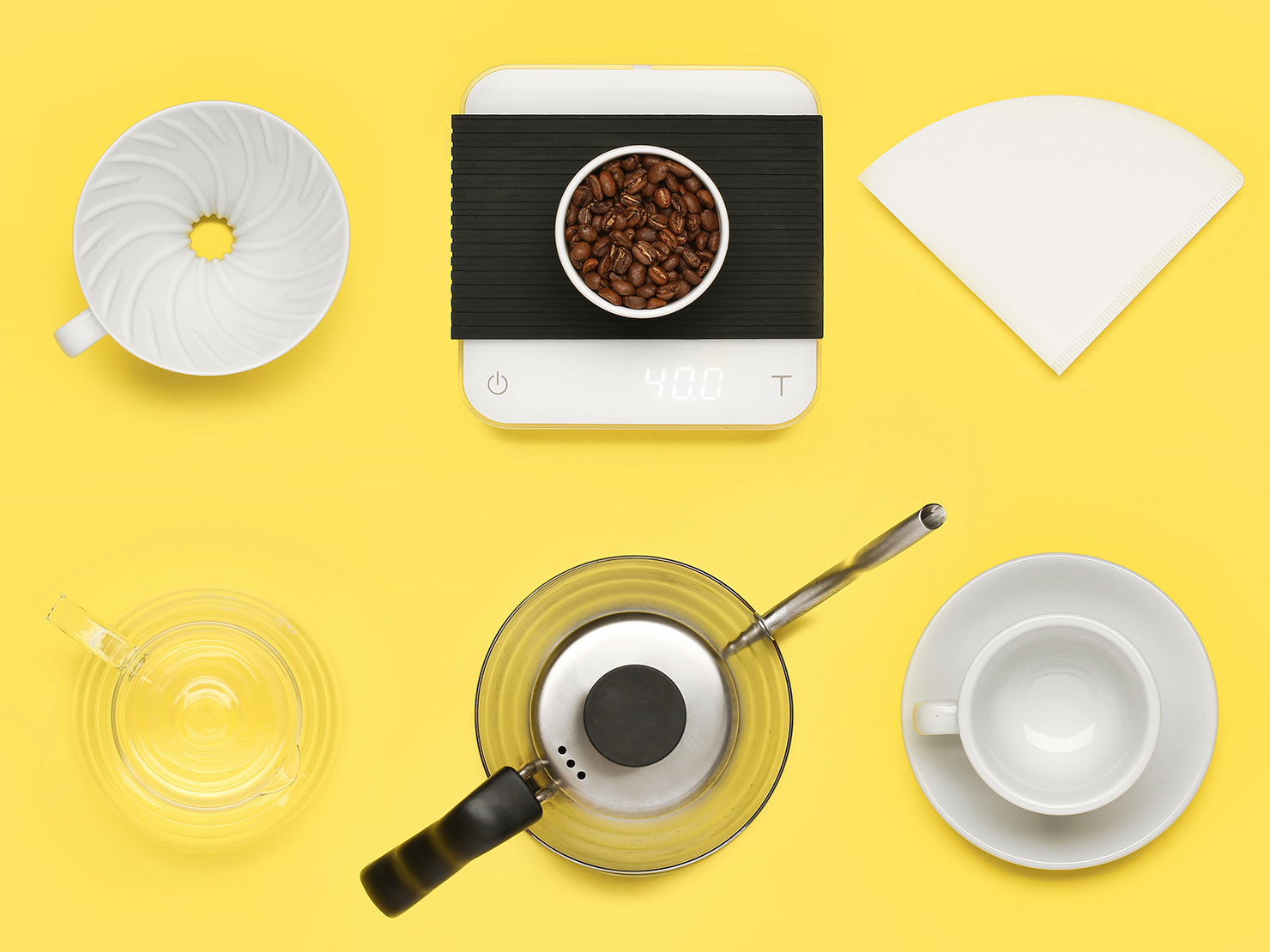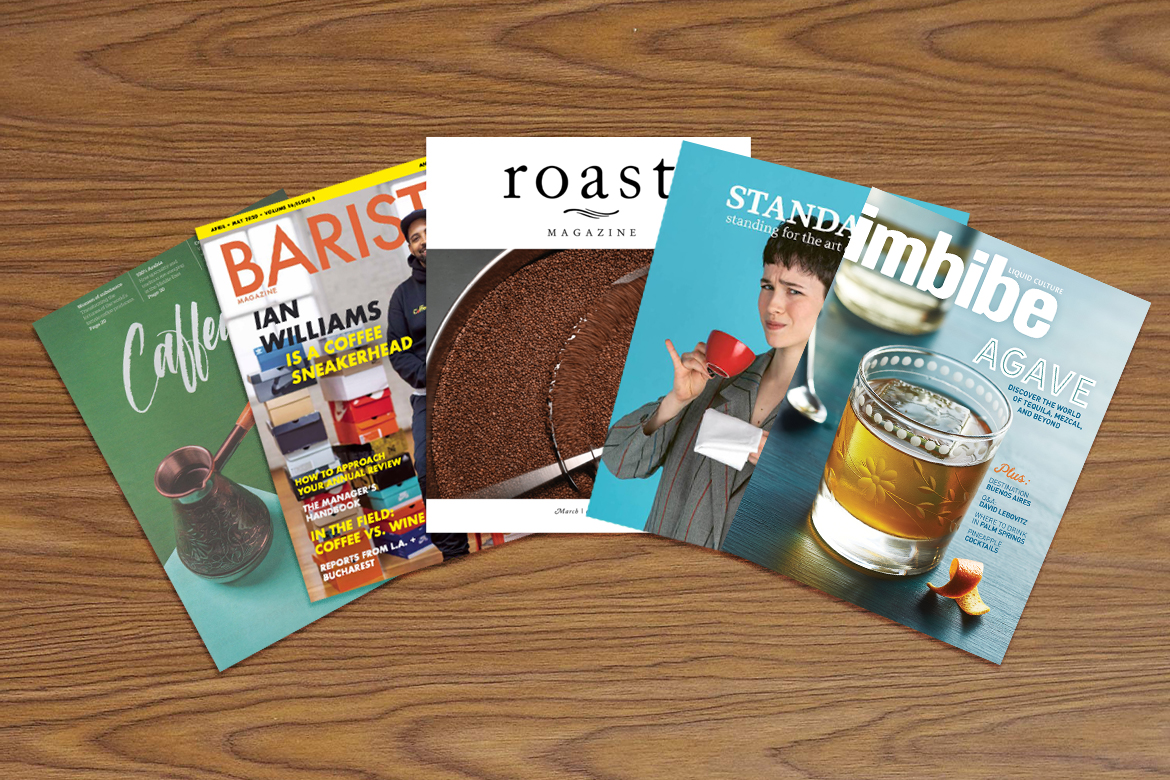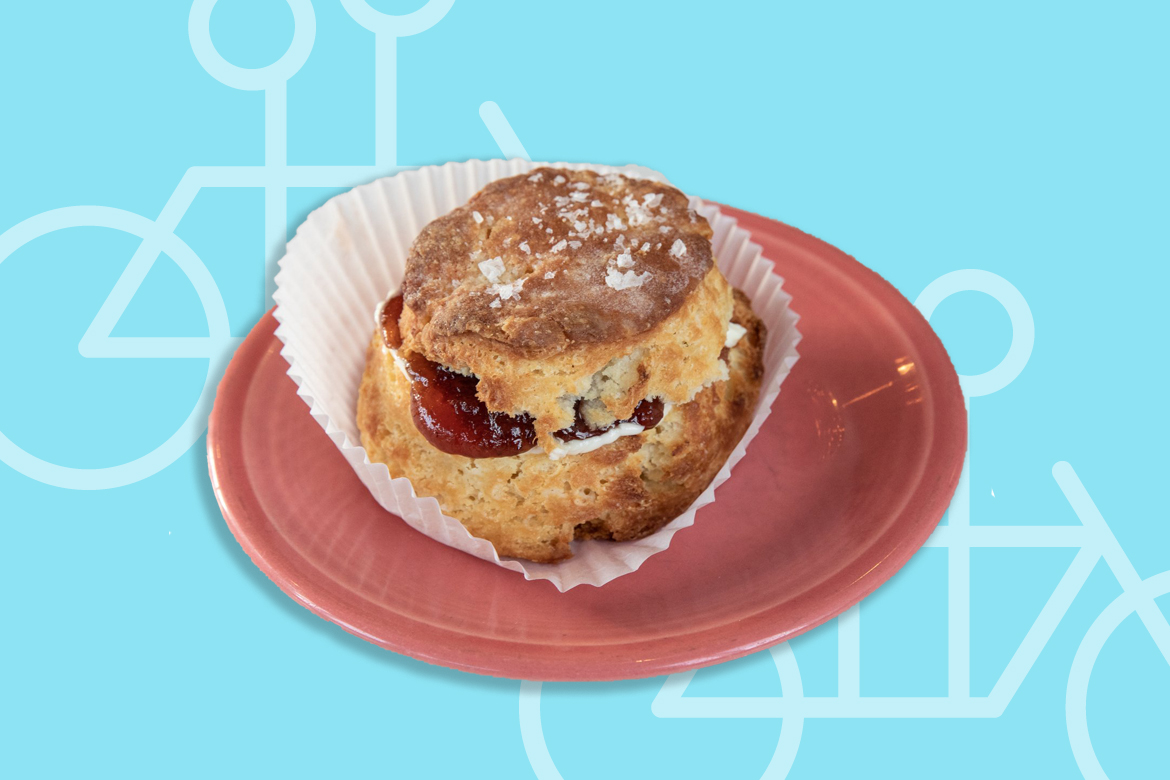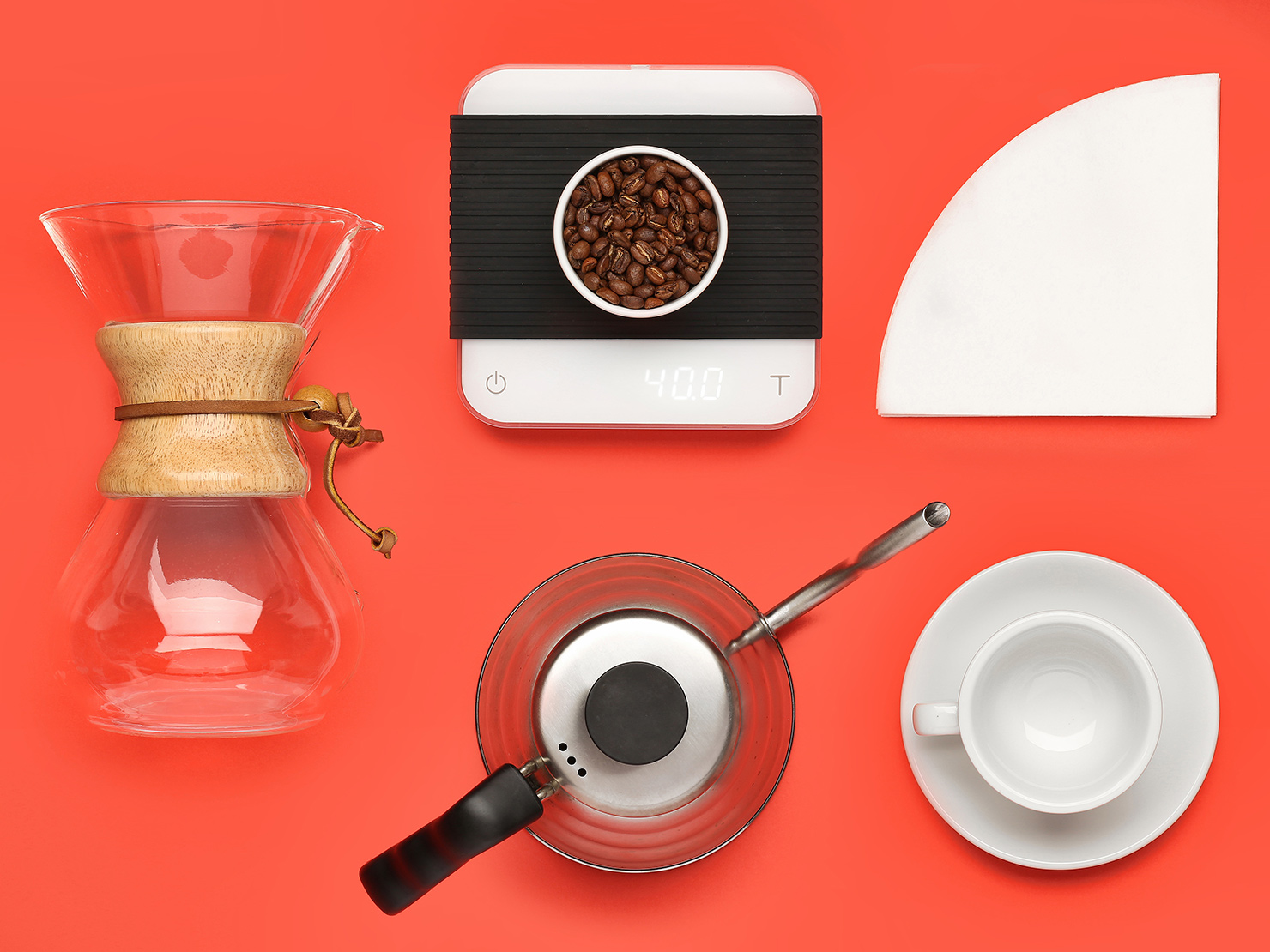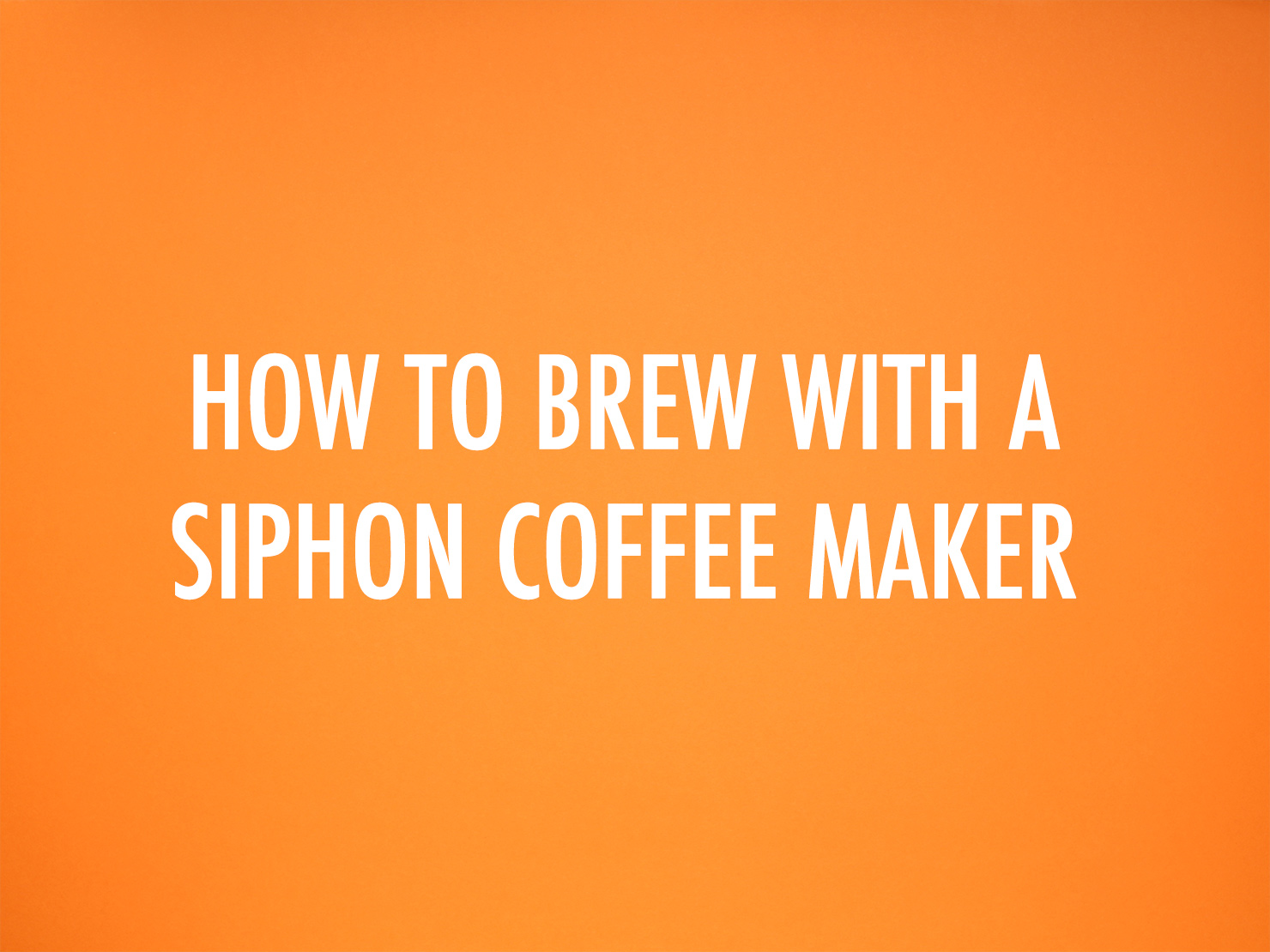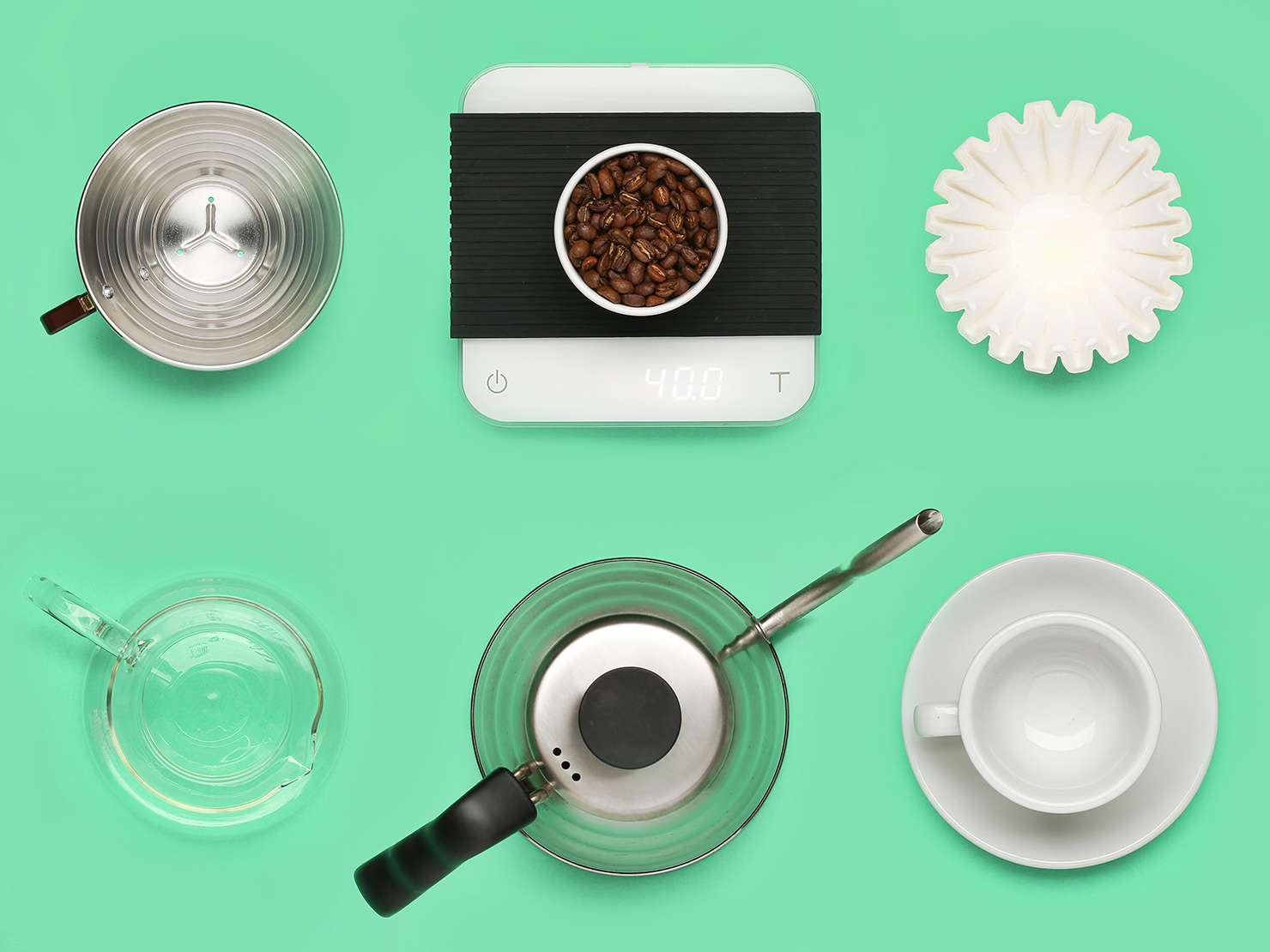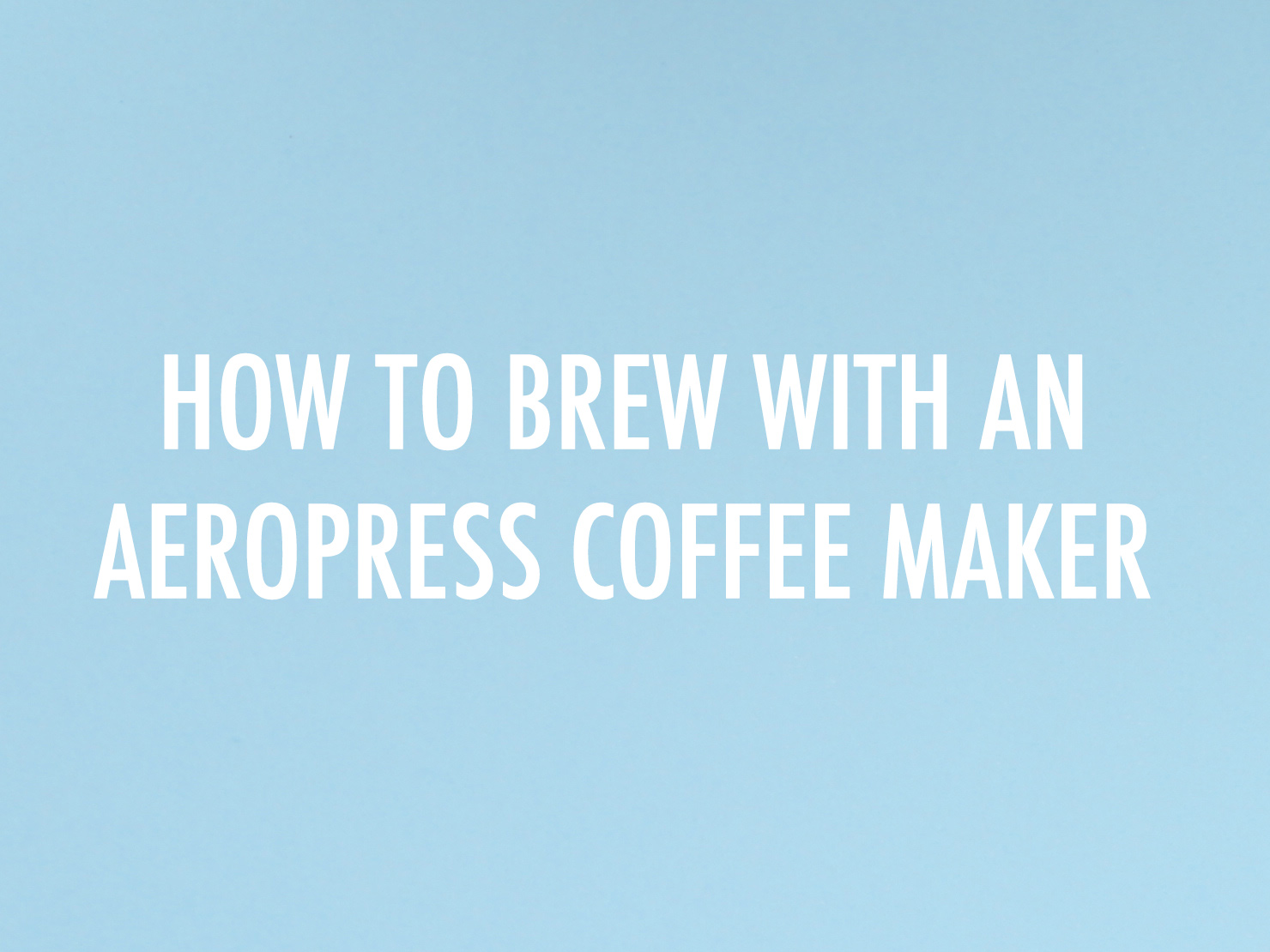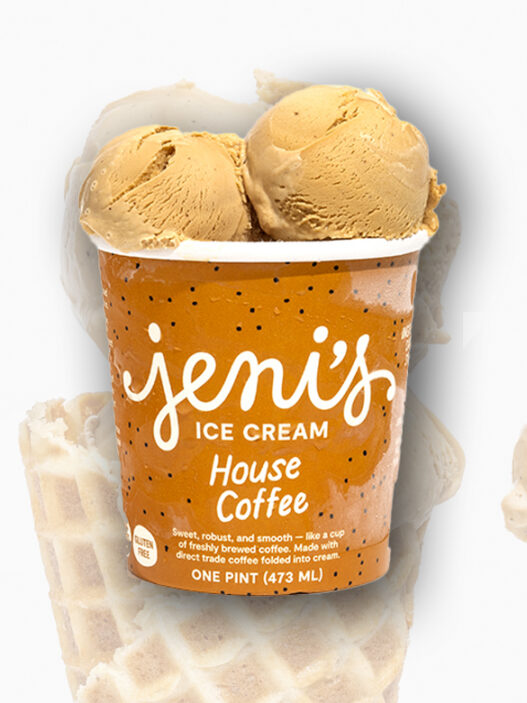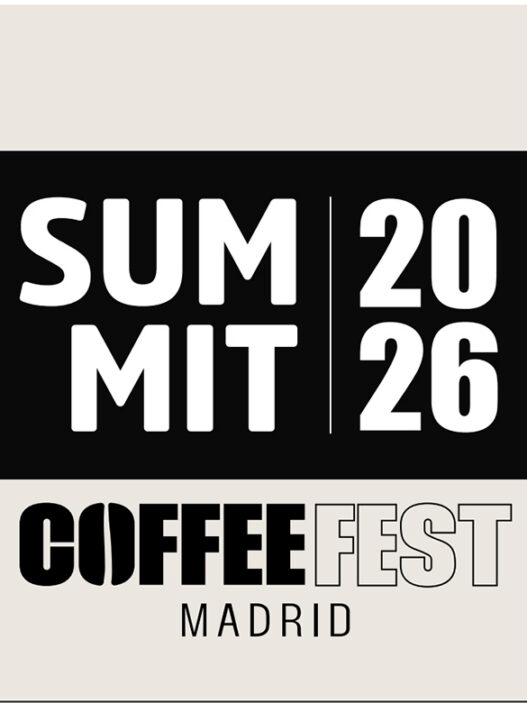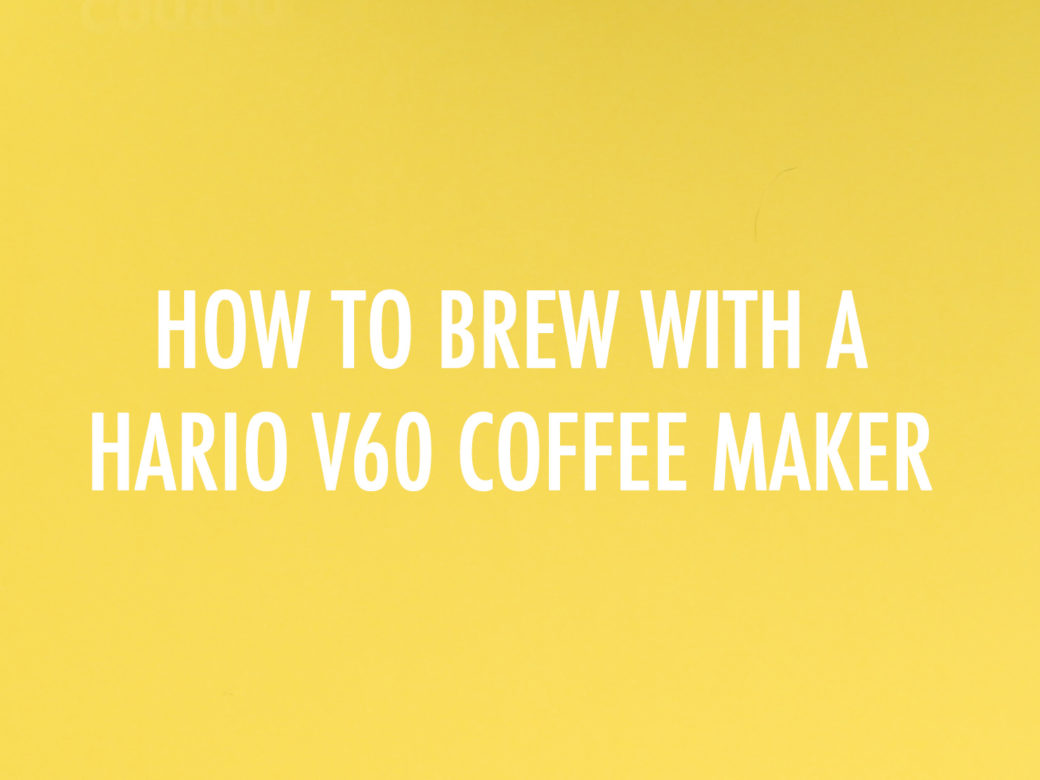
The Hario V60 Coffee Maker is a pour-over brewer, and a certified Sprudge favorite that’s perfect for brewing with at home. The V60 was invented in 2004 and is manufactured in Japan by Hario. The name stems from its distinct V shape and 60º angle. The brewer is available in various materials—glass, plastic, metal, and our personal favorite, ceramic (used in this guide).
Here’s our tried-and-true brew method that yields a delicious cup.
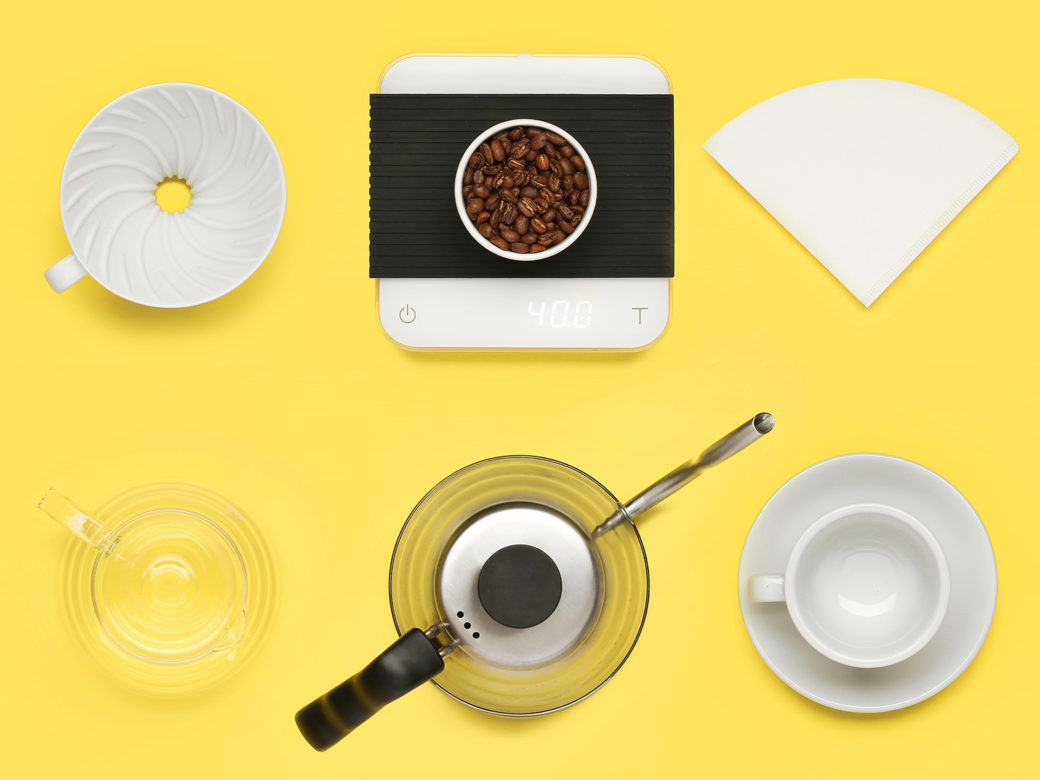
What you’ll need:
☑️ Hario V60 Coffee Maker
☑️ Hario filters
☑️ hot water
☑️ decanter
☑️ cup
What’ll you’ll want to have:
☑️ coffee grinder
☑️ gooseneck kettle
☑️ coffee scale
☑️ thermometer
☑️ stopwatch
Shop local—find a roaster selling gear in your area online. Don’t know where to start? Check out this map.
40g ground coffee (medium)
640ml hot water (205ºF)
Add 80ml of hot water and let bloom for 30 seconds.
After thirty seconds, slowly add remaining water until you reach 640ml at ~2:30 minutes.
Allow the water to draw down for thirty seconds or so.
Step one:
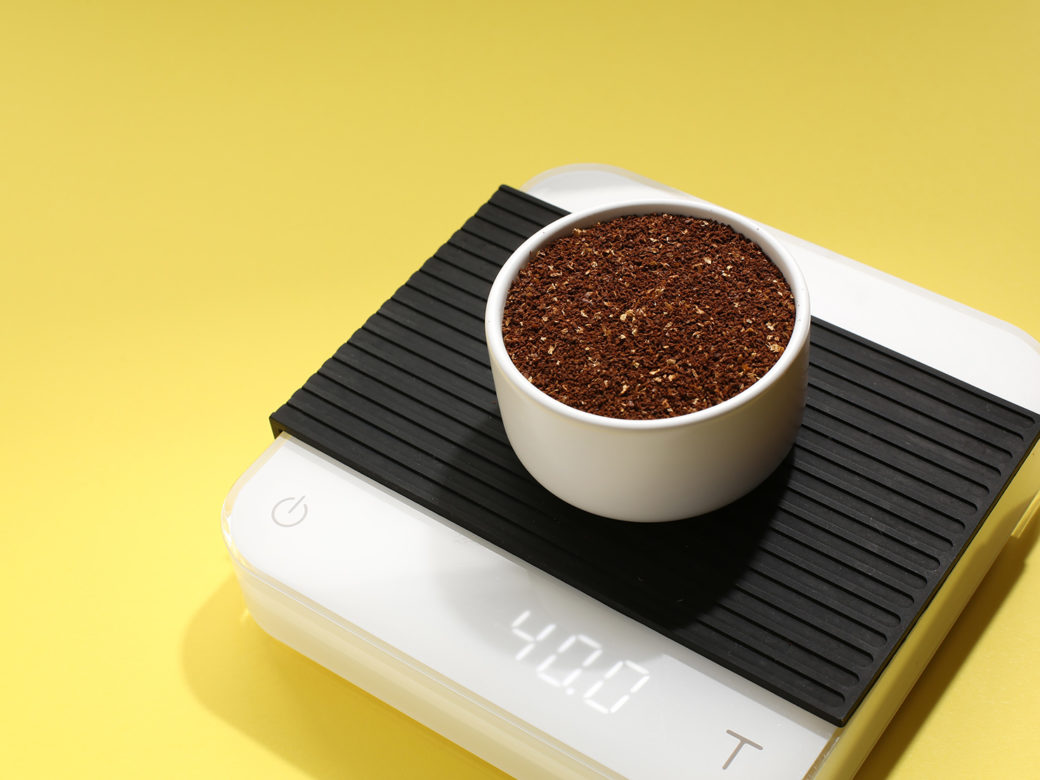
Measure out 40g of coffee and get your hot water going. Shoot for 205ºF/96ºC.
Step two:
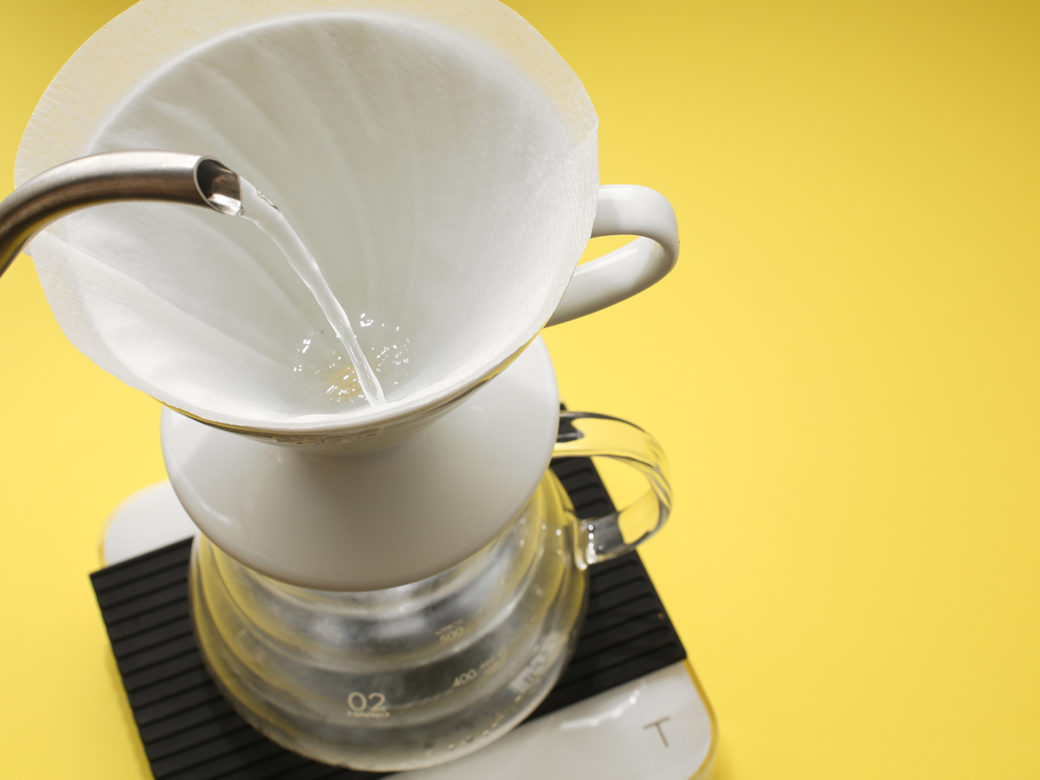
Once your water is up to temperature, place the V60 filter in the V60. It’s helpful to pre-fold the seam so that when you open the filter, it sits flat against the cone. Place the cone on top of a server. Pour a good amount of hot water through the filter to both rinse the paper filter and preheat the cone. A ceramic filter takes quite a bit of water to preheat—otherwise that mass will suck the heat out of your brew. Plastic filters, on the other hand, are great insulators and don’t need that much preheating.
Step three:
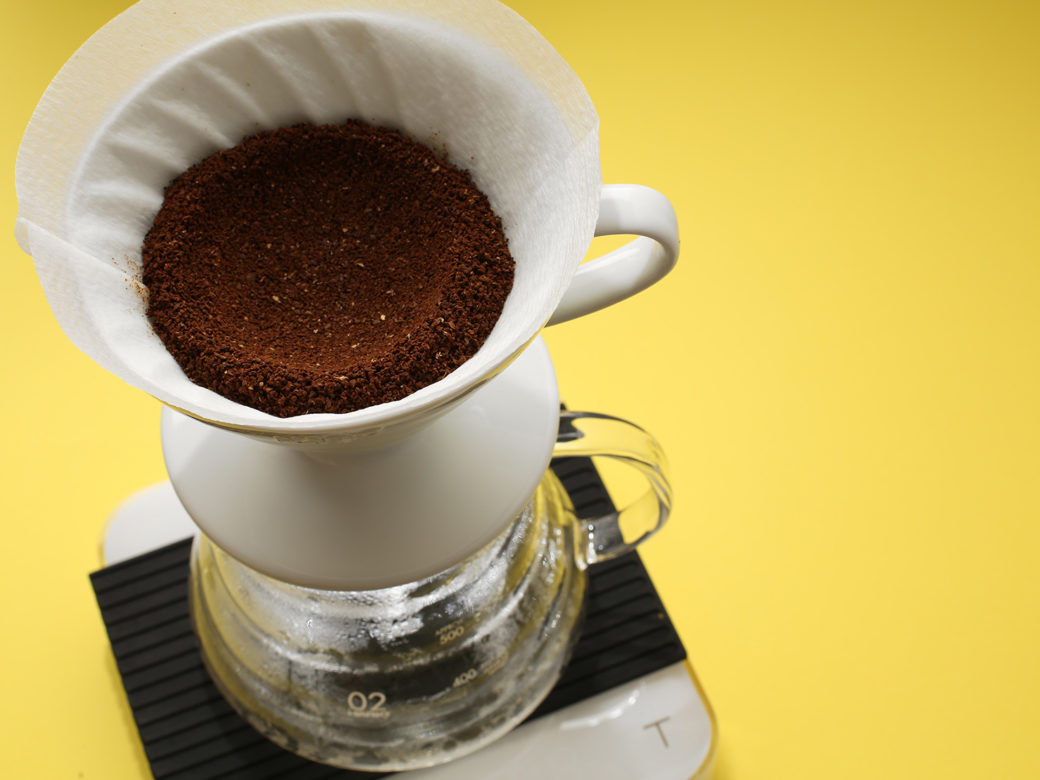
Grind the coffee and place it into the filter. We like making a depression in the bed of the coffee with a spoon or your finger to focus the stream of water to saturate all of the coffee. Place your coffee on the scale and tare it. Get your stopwatch ready!
Step four:
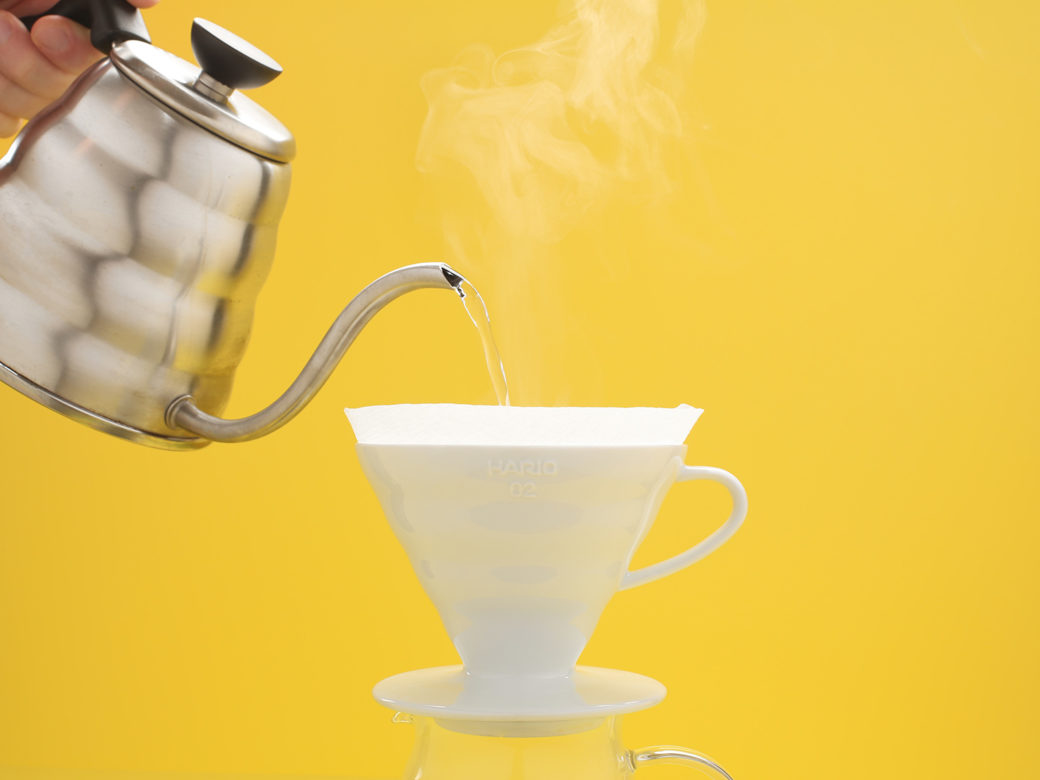
Pour about 80g of hot water on the grounds and start the timer. Use a spoon or a chopstick to stir up the bed of coffee, being careful not to tear or disrupt the paper filter.
Step five:
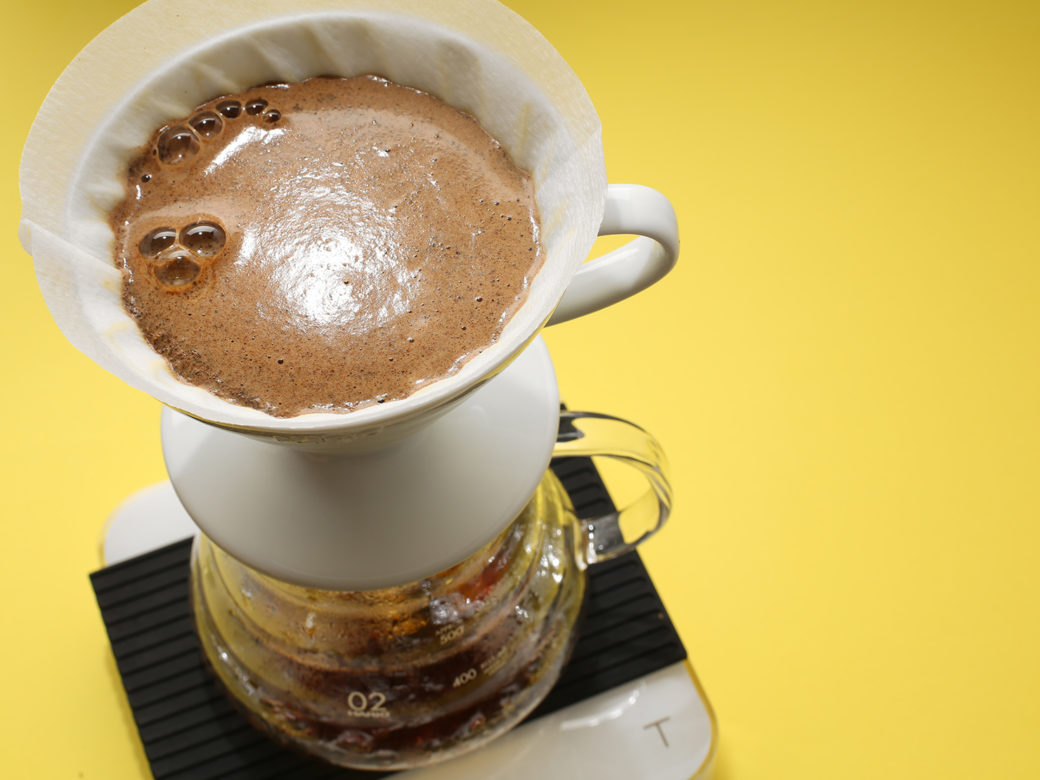
After 00:30 (30 seconds) has passed, pour the stream of water initially into the center of the bed, then use the directionality of the stream to distribute the coffee outwards evenly in a spiral-motion pour. Be gentle, you just want to push it outwards, not punch holes through it. Spiral back towards the center and maintain a steady pour; the objective is to make a circle with your stream the size of a silver dollar, but not actually pour straight down the center. This circular motion with a steady stream keeps the coffee grounds evenly distributed. Aim to complete your 640mL total water volume in 02:30. Once you are done pouring, take a spoon, and gently stir the coffee in the cone, scraping the sides of the filter. Be gentle, but don’t be afraid to give the liquid some direction. The drip-through should finish in about 00:30.
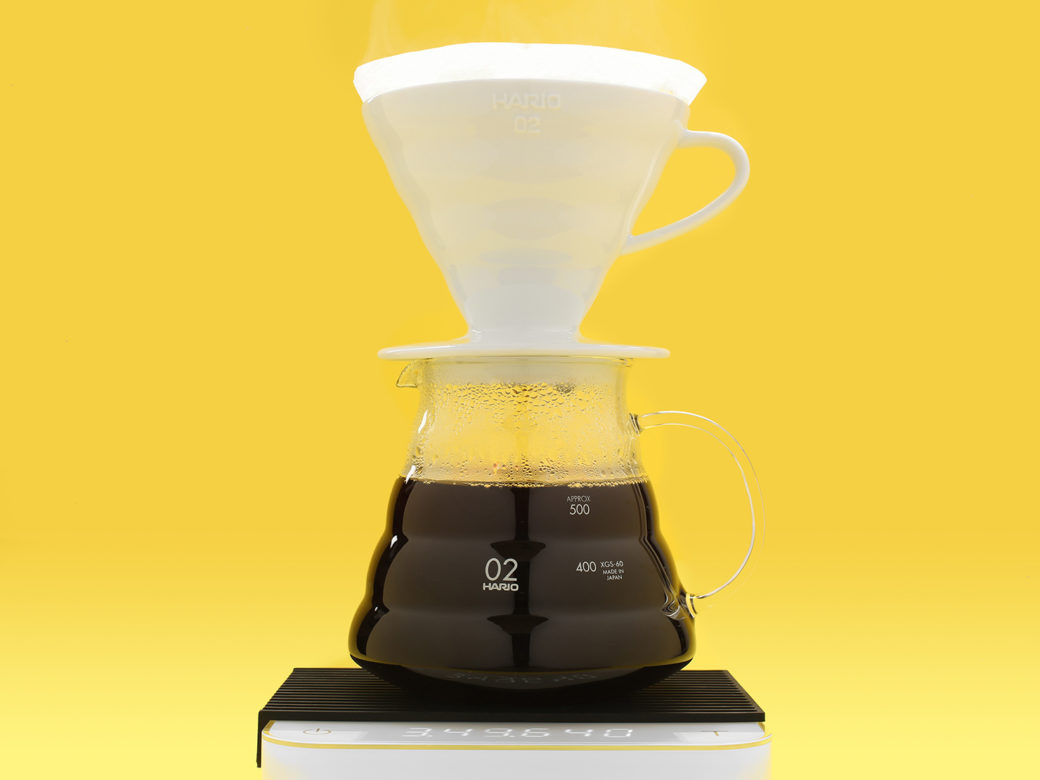
Hot tips
The V60 is a brew method that benefits greatly from using a pour-over kettle. The V60 is conical like the Chemex, but differs in that the paper filter is suspended on the ridges. No, the swirly shape of the ridges don’t create a vortex within the cone, but they do provide paths for liquid to travel along as it flows out of all points of the filter. Because the flow rate through the V60 is relatively unrestricted, aim to grind the coffee “medium,” like beach sand.
Alternatively, if you got the memo that the V60 was cool but have commitment issues and didn’t want to spring for the pour-over kettle, you can make it work with a stovetop kettle. Instead of maintaining a steady stream, try splitting up the main pour (after the initial bloom) into two chunks, and stir a bit in between to make sure all the grinds stay submerged. Your mileage may vary!
The V60 is fairly adept at handling a range of batch sizes—we have used an V60 01 to make as little as 75mL of coffee and a V60 03 to make as much as 1.2L. Try 640mL/40g with an 02 size cone.
Sprudge brew guides utilize a brew ratio of 16:1 by weight, that is, for every 16 grams of water used, 1 gram of coffee is used. This is slightly more generous than the 60g/L standard recommended by the SCA, as 1000/16=62.5.
Grind measurements are given in subjective analogs, e.g. “like playground sand.” Communicating particle size effectively is near impossible, as grinder settings don’t translate universally. Ultimately, tasting and experience will illuminate the proper range of grinds for each brew method.
We specify a “bloom” of 30 seconds. Try a little longer if the coffee is really fresh.
Troubleshooting
The rate at which coffee extracts is influenced by a set of variables: surface area, water temperature, agitation, flow rate, and so forth. Once you get consistent, confident, and consistently confident, try to juggle the variables a bit: grind finer and use slightly cooler water. Grind coarser and let it steep longer. This balancing act ensures that there’s no single right way to do any of this… just use your noggin, but more importantly, use your taste to guide you.
Generally, if a coffee is thin, hollow, grassy, sour, lacks sweetness, it’s not extracted enough. The most effective way to correct this is to make the grind finer and keep everything else the same. If a brew is bitter, harsh, astringent, it’s over-extracted: next time, try coarsening up the grind.
Further Reading
Joe Coffee Hario V60 Brew Guide
Dogwood Coffee Hario V60 Brew Guide
Amavida Coffee Hario V60 Brew Guide
Equator Coffees Hario V60 Brew Guide
Partners Coffee Hario V60 Brew Guide
Pilot Coffee Roasters Hario V60 Brew Guide
Intelligentsia Coffee Brew Guide
Do you have a Hario V60 brew guide or video? Let us know!
Brew Videos
Stumptown Coffee Hario V60 Brew Video
James Hoffmann’s V60 Brew Video
Matthew P. Williams contributed to this reporting. Photographs by Bryan Schiele.




